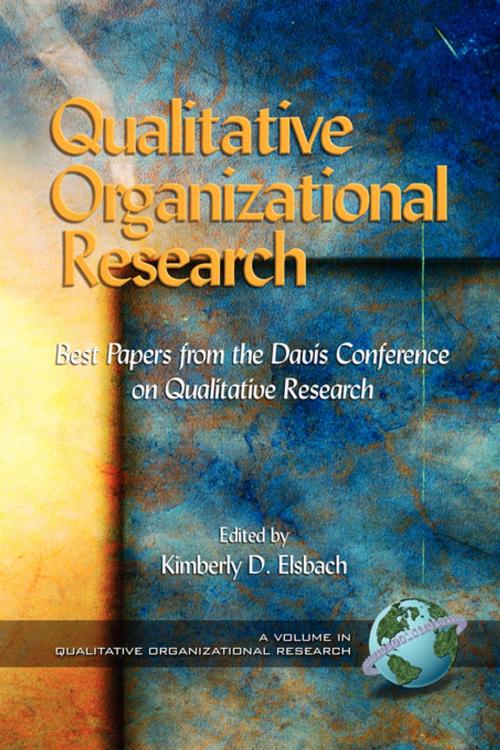Qualitative Organizational Research Volume 1
Best Papers from the Davis Conference on Qualitative Research
Business & Finance, Management & Leadership, Negotiating| Author: | ISBN: | 9781607524748 | |
| Publisher: | Information Age Publishing | Publication: | June 1, 2005 |
| Imprint: | Information Age Publishing | Language: | English |
| Author: | |
| ISBN: | 9781607524748 |
| Publisher: | Information Age Publishing |
| Publication: | June 1, 2005 |
| Imprint: | Information Age Publishing |
| Language: | English |
Over the past five years the Davis Conference on Qualitative Research has welcomed research projects by the very best qualitative, organizational researchers in the world. This conference has helped authors develop and hone theoretical ideas in an environment friendly to qualitative methods, and more importantly, has begun to build a community of qualitative researchers that work on organizational and management issues. The authors winning the "Best Presentation Awards" at the Davis Conference over the past five years have contributed chapters to this volume. The ideas in these chapters were "born" before the conference, but were nurtured through dialogue at the conference, and subsequently matured through later interactions among the community of qualitative scholars associated with the conference. As such, this volume represents the fruits of our collective labor as a qualitative research community. This collective and iterative process is a hallmark of qualitative methods, and often leads to a counterintuitive, "ahhah" experience for the researcher. This volume showcases some of the very best of those ahhah experiences from the organizational, qualitative research community.
Over the past five years the Davis Conference on Qualitative Research has welcomed research projects by the very best qualitative, organizational researchers in the world. This conference has helped authors develop and hone theoretical ideas in an environment friendly to qualitative methods, and more importantly, has begun to build a community of qualitative researchers that work on organizational and management issues. The authors winning the "Best Presentation Awards" at the Davis Conference over the past five years have contributed chapters to this volume. The ideas in these chapters were "born" before the conference, but were nurtured through dialogue at the conference, and subsequently matured through later interactions among the community of qualitative scholars associated with the conference. As such, this volume represents the fruits of our collective labor as a qualitative research community. This collective and iterative process is a hallmark of qualitative methods, and often leads to a counterintuitive, "ahhah" experience for the researcher. This volume showcases some of the very best of those ahhah experiences from the organizational, qualitative research community.















